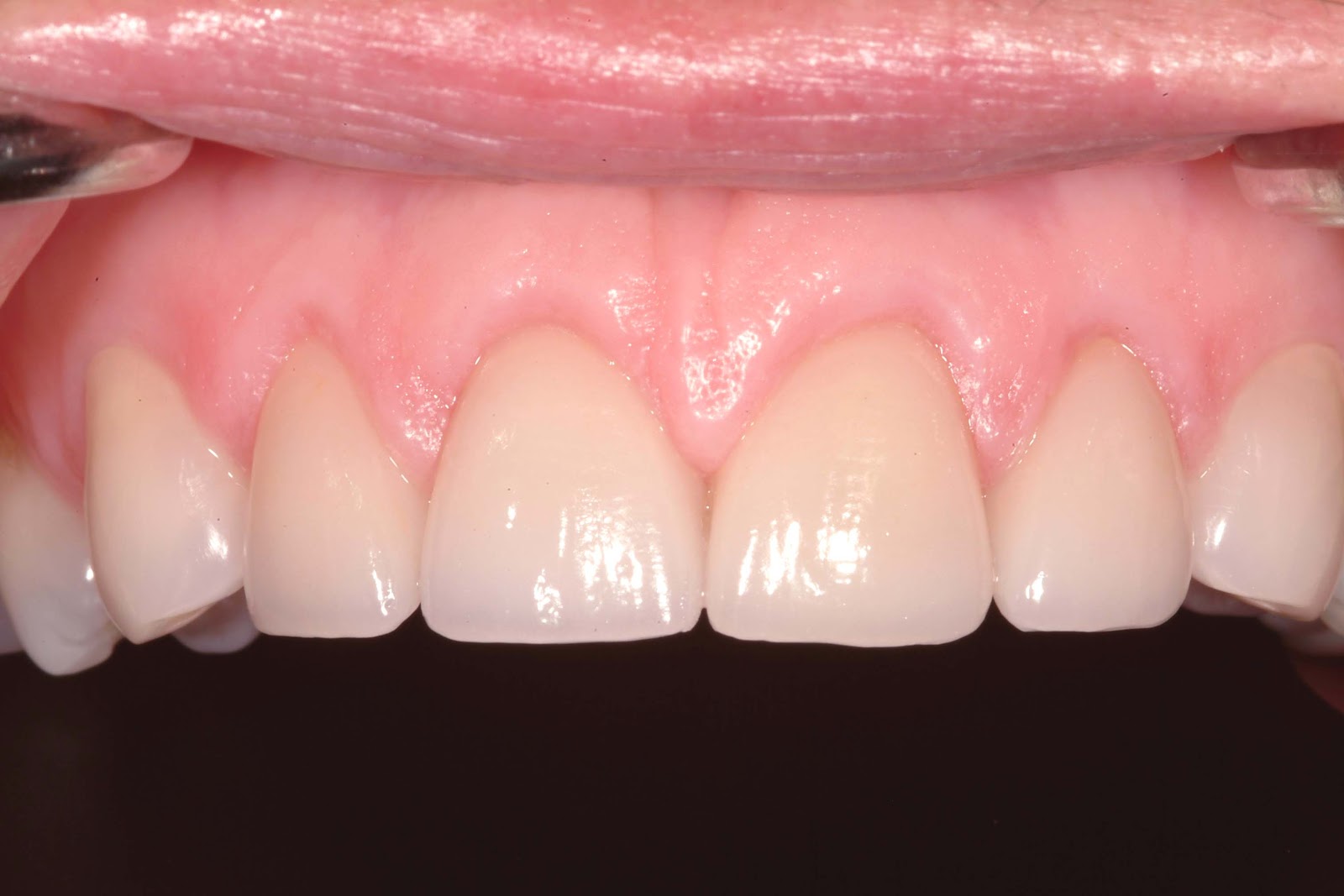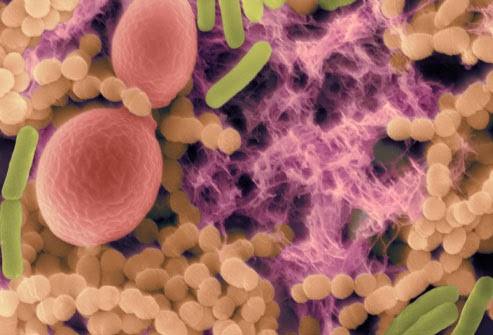Gingivitis - Gingivitis
Gingivitis is an inflammation ( inflammation ) of the gums .
cause
Gingivitis is usually caused by poor oral hygiene , forming a plaque or tartar on the teeth adjacent to the edge of the gums . Plaque and tartar contains many bacteria that will cause infection in the gums . If not improved oral hygiene , gingivitis will worsen and develop into periodontitis .
Gingivitis is usually caused by poor oral hygiene , forming a plaque or tartar on the teeth adjacent to the edge of the gums . Plaque and tartar contains many bacteria that will cause infection in the gums . If not improved oral hygiene , gingivitis will worsen and develop into periodontitis .
But gingivitis can also be caused by systemic diseases . For example, in patients with leukemia and Wegner disease which tend to be more susceptible to gingivitis . In people with diabetes or HIV , a disturbance in the immune system (immune system ) led to a lack of the body's ability to fight off bacterial infection of the gums .
Hormonal changes during pregnancy , puberty , and steroid therapy also causes the gums more susceptible to bacterial infections . The use of drugs in patients with high blood pressure and post- organ transplantation can also suppress the immune system so that the infection of the gums more easily occur .
Symptoms and Signs
Gums appear swollen , red , tender , and bleed easily when brushing your teeth or use dental floss . Gingivitis can also cause bad breath ( halitosis ) .
treatment
Your dentist will perform checks on the gum or periodontal tissue by using an instrument called a periodontal probe . This tool is used to measure the depth of the sulcus gums ( which are V-shaped gap between the teeth and gums ) . Normal depth of gums sulcus ranged from 0-3 mm . Gingivitis or periodontitis will cause increased sulcus depth and form a pocket . The higher the degree of severity of the disease , the deeper pockets are formed . Periodontal probe can also be used in determining the severity of bleeding of the gums .
Others
Cleaning of plaque and improvement of oral hygiene is a key element in addressing gingivitis . Do brush your teeth twice a day , in the morning after breakfast and at night before bed . Perform flossing once a day to clean plaque and food scraps in the crevice between teeth . In severe gingivitis usually requires the use of antibiotics , but of course it must be prescribed by a dentist . Perform regular visits to the dentist every 6 months for a check-up and cleaning around the teeth .
Oral Malignant Melanoma ( Malignant Tumor
Mouth )
Definition
Malignant
Melanoma actually rare in the oral cavity , only 1 % of all melanomas .
However, the disease can be fatal . When had developed into an advanced ,
malignancy or malignancy can be life threatening . Therefore , early diagnosis
and treatment is very helpful to prevent the disease course to a more severe
level .
What
actually Malignant Melanoma ?
Melanoma
is a skin cancer , which occurs in the cells that produce pigment in the skin ,
yaitumelanosit . Under normal circumstances , melanocytes located in the outer
layer of the skin and produce melanin, the brown pigment that . Melanocytes
present in the highest amount on the skin . But melanoma can also occur in the
oral cavity , called the Oral Melanoma .
Melanoma
occurs when melanocytes divide uncontrollably and invade ( invade ) other
tissues . Otherwise hastily treated , melanoma can grow into the skin tissue
that eventually reach the blood vessels and lymph vessels , and spread
throughout the body ( metastasis ) . It was then that melanoma can lead to
death .
How do
the characteristics of Oral Malignant Melanoma ?
Oral
melanoma ( melanoma arising in the oral cavity ) can be seen as pigmentation ,
without symptoms or pain ( asymptomatic ) , the pigmentation is usually dark
brown or black on the area of intraoral ( inside the mouth ) . Lesions usually
appear solitary or unit , but multiple lesions have also been reported .
Examples
of such cases are found and dealt with by Mustafa et al Goregen of Ataturk University , Turkey . Patients already wearing
full maxillary denture for 20 years . Behind the replica teeth that arise
rapidly enlarging lesions , solitary , and no pain .
The
most common sites are the palate and the mucosa ( soft tissue ) in the upper
jaw . Melanoma can metastasize to the lower jaw , tongue , and the inside of
the cheek .
Oral
Melanoma can be cured with surgery , and in certain cases can also be done with
radiotherapy , chemotherapy , and immunotherapy . But of course, the success
rate is higher when treatment is done at an early stage .
Thorough
examination by a dermatologist or physician is helpful to check the existence
of dental and oral melanoma melanoma early . Be aware of changes in your body
and consult a physician .
Investigations
what it takes to help the diagnosis ?
Diagnostic
imaging technique such as X - Ray
, CT - Scan , MRI and positron
emission tomography ( PET scan ) may be performed to
It
also needs a tissue biopsy , in which the suspected cancerous tissue removed
for examination under a microscope . Once the diagnosis is established ,
necessary to determine the extent to which the melanoma had penetrated into the
tissues .
Melanoma
is more likely already in the blood vessels and lymph nodes . Therefore, it is
also necessary to biopsy the lymph nodes adjacent to the lesion .
Oral Malignant
Melanoma
( Malignant Tumor
Mouth )
Melanoma
character should be suspected when arising in the skin are :
The
lesions are usually not symmetrical , in which one side is not the same size
and shape than the other side . Another case that is not experiencing mole
malignancy , usually round and symmetrical shape .
o
Limit unclear / irregular
Lesions
usually no clear boundary with the surrounding skin , or uneven edges .
Melanoma
usually do not arise in one color , but rather a combination of several colors
in several parts . For example, one side of bluish or brownish , blackish color
on the other side .
Ordinary
moles are not enlarged , but the size of the melanoma will continue to grow .
The increase in size is usually rapid.
What are
the causes of Oral Melanoma ?
Until
now , the causes not yet known with certainty . But there are factors that are
often associated with melanoma , which can occur in any part of the skin .
Among these excessive sun exposure , or a history of frequent sunburn ,
especially in childhood began .
The
risk of melanoma can also be inherited from parents . White people more at risk
for this malignancy . So also people with many moles , totaling 50 more in the
body , are more at risk of suffering from melanoma .
But
melanoma also occurs in parts of the body that are not exposed to the sun such
as the oral cavity . Oral melanomas are associated with mechanical trauma ( as
reported in the above case ) . Mechanical trauma can be caused by ill-fitting
dentures . It also reported an association between oral malignant melanoma with
smoking , alcohol consumption and other irritation due to oral appliance .
Benign moles can also transform into malignant ( malignant ) .
RELATED TOPIC
BOOKMARK
& SHARE
















